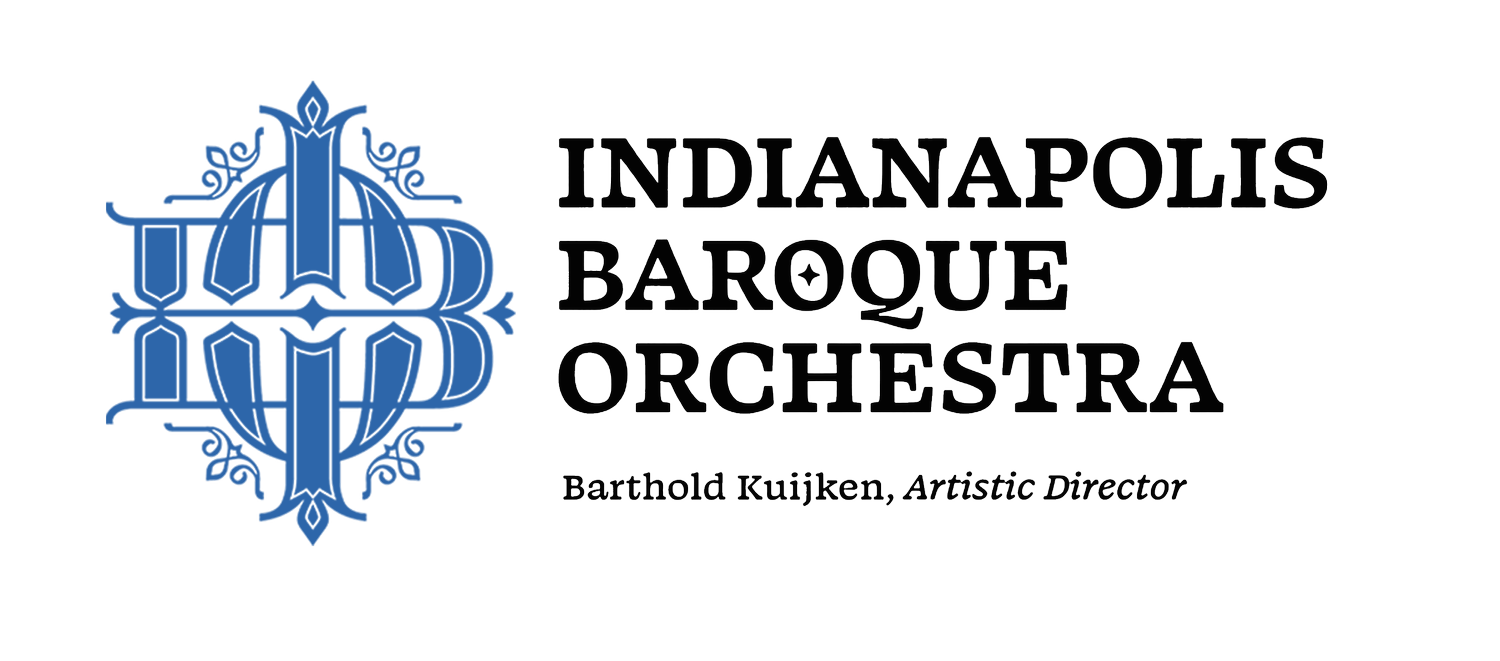Mostly Bach—But Which One?
When we think of “Bach,” we usually picture Johann Sebastian—the bewigged master whose music defines the Baroque. But the Bach name resonated through generations. His sons bridged the musical worlds their father helped define and the new Classical era on the horizon.
Indianapolis Baroque Orchestra’s 25-26 season is affectionately nicknamed “Mostly Bach,” and the first concert might not be what you expect. As IBO co-founder and harpsichordist Tom Gerber notes, “this is the one concert that has no Johann Sebastian Bach, but has music by four of his sons—from the oldest, Wilhelm Friedemann, to the very youngest, Johann Christian. In the middle are two others—Carl Philipp Emanuel and Johann Christoph Friedrich.
They’re fairly well known—the oldest, Wilhelm Friedemann; C.P.E., who worked for Frederick the Great; and Johann Christian, the ‘London Bach.’ It’s Johann Christoph Friedrich who’s less well known, but he was a prolific composer, too.
The highlight is the Flute Concerto. It will feature Barthold Kuijken, who’s been our artistic director for 15 or 20 years—a major star in the early music world and one of the pioneers of the revival of Baroque music on period instruments.”
Let’s learn a bit more about each of these composers
Wilhelm Friedemann Bach (1710–1784) — The Rebel
The eldest son, brilliant and unpredictable.
Gifted with dazzling talent, Wilhelm Friedemann was both admired and questioned. He inherited his father’s brilliance but added flashes of improvisatory daring that baffled some of his contemporaries. Known as “W.F.” or “Halle” Bach, a name he earned because he worked as the music director and organist at the Church of Our Lady in Halle, Germany, he often resisted convention—and fame never quite caught up to his genius.
Carl Philipp Emanuel Bach (1714–1788) — The Philosopher
The most influential of the sons.
C.P.E. Bach served Frederick the Great in Berlin before moving to Hamburg, where his expressive, almost theatrical music helped define the Empfindsamer Stil (“sensitive style”). Mozart later said, “He is the father, we are the children.” His influential works mark the turning point between Baroque and Classical styles.
Johann Christoph Friedrich Bach (1732–1795) — The Courtly Craftsman
The least known but quietly elegant composer.
Johann Christoph Friedrich was called the “Bückeburg Bach” for the small German court where he served most of his life. He was an outstanding virtuoso of the keyboard who wrote refined symphonies that mixed his father’s structural clarity with early Classical grace.
Johann Christian Bach (1735–1782) — The Cosmopolitan
The youngest, nicknamed the “London Bach.”
Johann Christian received his early musical training from his father, and later from his half-brother, C.P.E. in Berlin. He then made his way to Italy and was appointed organist at the Milan Cathedral. In 1762 he became a composer to the King’s Theatre in London and became known as "The London Bach,” composing elegant concertos that charmed London’s fashionable audiences. His Flute Concerto in D Major sparkles with wit and Italianate flair.
A Family in Motion
In a single afternoon, the Indianapolis Baroque Orchestra will chart the journey from the ornate counterpoint of the High Baroque to the clear, singing lines of early Classicism. These four Bachs didn’t just carry their father’s legacy forward—they reinvented it, each in their own corner of Europe.
Tom Gerber puts it simply: “You’ll hear how the family’s genius evolved—from Wilhelm Friedemann’s intensity to Johann Christian’s elegance.”
The Bach Heritage concert opens IBO’s “Mostly Bach” season on November 23 at Second Presbyterian Church, conducted and led by Barthold Kuijken. It’s a chance to hear not just one Bach, but a whole family that shaped Western music. Four sons, four voices, one remarkable lineage.

